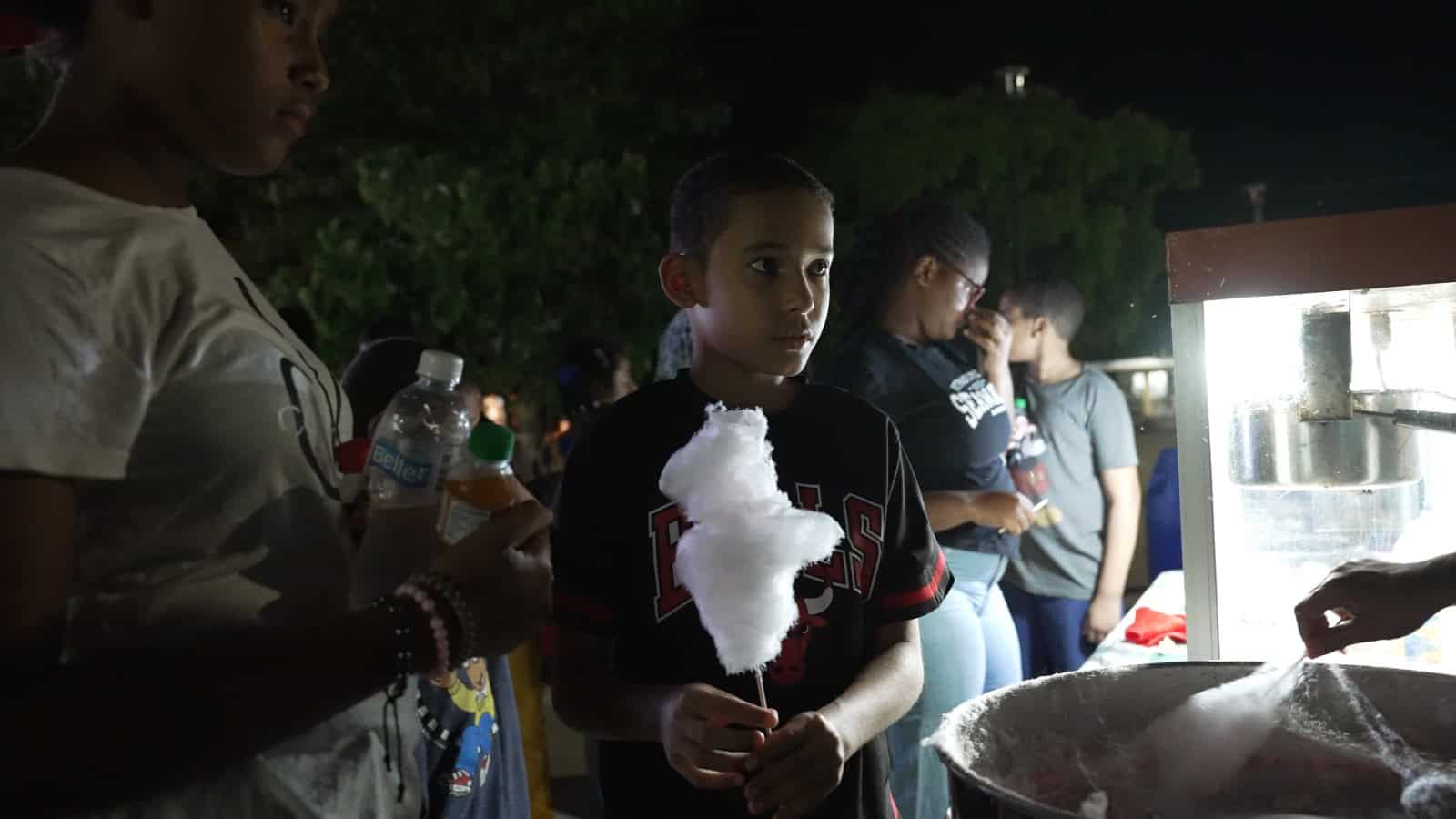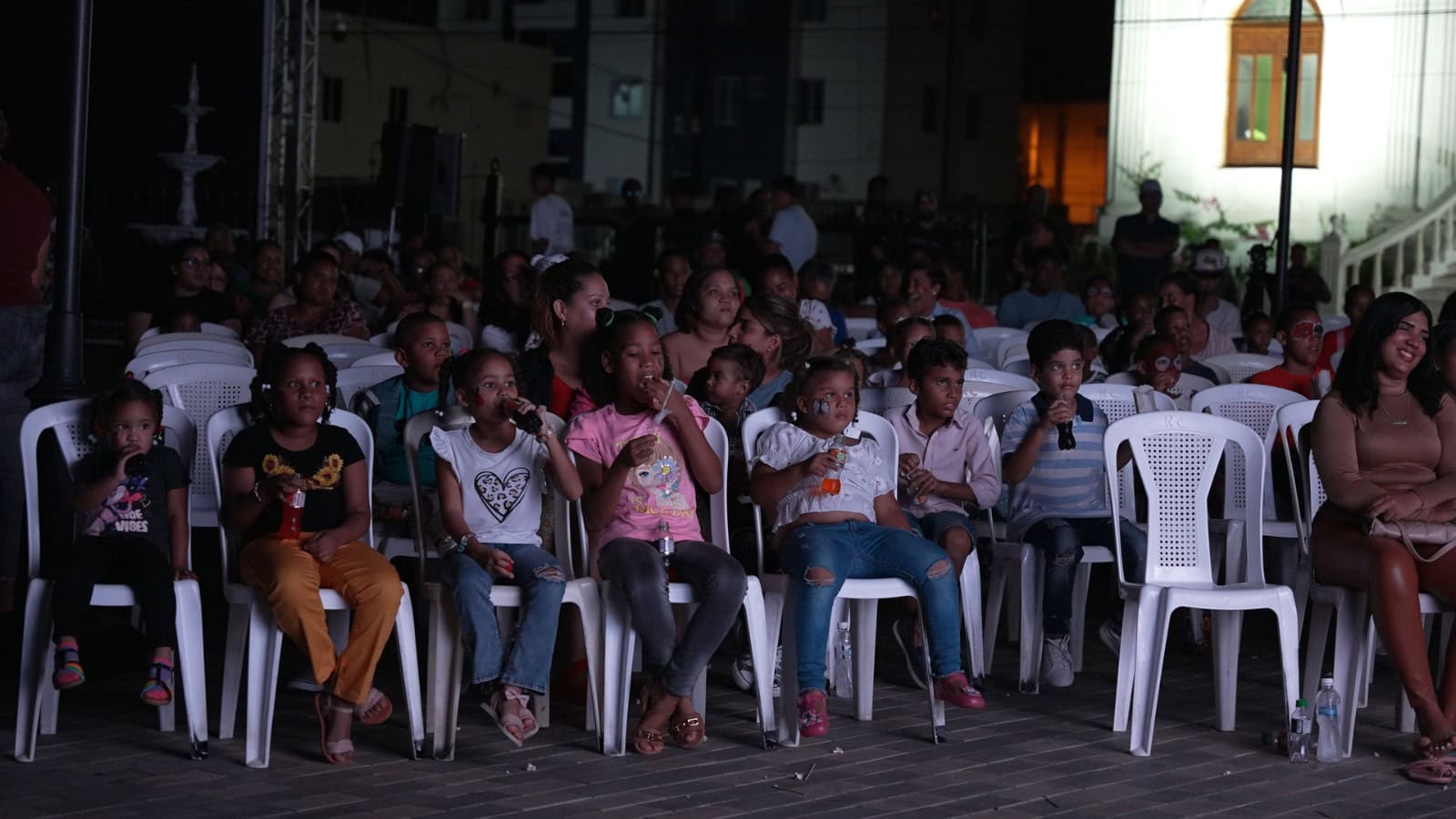“Rueda cine” makes Dominican cinema accessible to everyone

For several years now, Dominican cinema has experienced notable growth in terms of production , quality, and diversity. However, one concern persists among its creators: many Dominicans still do not consume or appreciate films made in their country.
In response to this gap, “ Rueda cine ” was born, a project conceived by Antonio Alma Turull that encourages dialogue and cultural appreciation through traveling screenings.
“ Rueda cine ” is a traveling cinema that aims to break down the geographic, economic and cultural barriers that limit the access of many communities to Dominican cinema .
Born from the concern of filmmakers and producers worried about the low consumption of local cinema , it offers free screenings in public spaces, accompanied by community activities and workshops that promote film appreciation and the creation of new audiences .
A mobilizing idea
To understand how this initiative came about, the project director explains that his relationship with cinema dates back to a very early age. "My mother has always been connected to cinema .
"I left school in 2012 and went to a film set. Although it wasn't my first love, because I fell in love in 2010, film was my second love," he recalls with nostalgia.
That experience led him to create his company, Rufiosa, dedicated to equipment rental and post-production services, where he began to identify a worrying disconnect between local productions and the public.
“The conclusion I reached last year, regarding the industry and public opinion, was that Dominicans haven't seen their country's cinema ,” Alma says. This revelation coincided with a Central Bank study confirming that local cultural consumption, particularly of film , is highly concentrated in specific sectors and urban areas.


This is how “ Rua Cine ” was born, not only as an exhibition space, but as a platform to rethink the public's relationship with its narratives.
For his part, Orlando Santos , one of the project managers, shares that from the beginning they were clear that the project would not be just a mountable screen and a movie, but a comprehensive experience .
“We wanted it to become a space for conversation , so that people wouldn't just watch the film, but would talk about it, identify with what they see, question, and engage in dialogue ,” Santos explains.
This approach has been one of the project 's greatest successes, as it has already toured several neighborhoods and communities across the country.
Beyond the screenOne of the main goals of " Ruta Cine " is to combat the cultural elitism that often surrounds cinema . According to Orlando, " cinema can't be limited to festivals or the capital's big theaters.
It has to reach the neighborhood court, the people's park, the vacant lot where people gather to share."
Following this logic, they have carried out screenings in rural communities , marginalized neighborhoods and areas where an event of this type had never been organized before.
The project also pays special attention to the curation of the selected films. Priority is given to works that address social or historical themes or reflect current issues in the country, but without being didactic.
Each screening is accompanied by an open forum or guided discussion , often featuring directors , screenwriters, or actors involved in the production .
For Alma, this interaction is vital: “We have to break the idea that cinema is something unattainable. Filmmakers are here, they're part of the community, they have things to say and also a lot to listen to .”
Form audiences
The audience response has been overwhelmingly positive at each screening. At each event, attendance exceeds expectations, and residents themselves often help with logistics, from carrying chairs to preparing refreshments.
This community ownership of the project has been, for its creators, the greatest sign of success.
- “People feel it's theirs. That's the most beautiful thing we've seen,” Orlando proudly confesses.
In addition to screening films, Rueda Cine has launched workshops on film appreciation , an introduction to audiovisual language, and screenwriting in several communities . The goal is to develop new audiences and inspire future filmmakers.
“We want someone who sees a film on their street today to imagine themselves directing one tomorrow,” says the project ’s creator, emphasizing the transformative potential of cinema as an educational and empowering tool.
Real and sustainable changeLooking to the future, the promoters of " Rueda Cine " have great aspirations . They dream of expanding the project nationally, establishing partnerships with educational institutions, and producing their own documentary content about the stories emerging in these communities .
“It's more than cinema . It's memory , it's encounter , it's possibility ,” Antonio concludes.
The initiative not only demonstrates the power of cinema as an art form and a means of communication , but also demonstrates how creativity can be used to bring about social change.
In a country where audiovisual production is growing, but access and emotional connection with audiences remain challenges, " Rueda Cine " represents a replicable and necessary model . A reminder that the best stories aren't just shown , they're also shared .
Among the films shown by “Rueda cine” (@ruedacine) in different communities in the DR are:
“Captain Wasp” (2024), animated film by Jean Gabriel Guerra and Jonnathan Meléndez. “Venom: First Fall - Jack's Lightning” (2018), by Tabaré Blanchard. “The Supers” (2013), by Bladimir Abud. “Perico ripiao” (2003), by Ángel Muñiz.
“New Yol: Balbuena finally arrived” (1995), by Ángel Muñiz.
TOPICS -
Diariolibre





